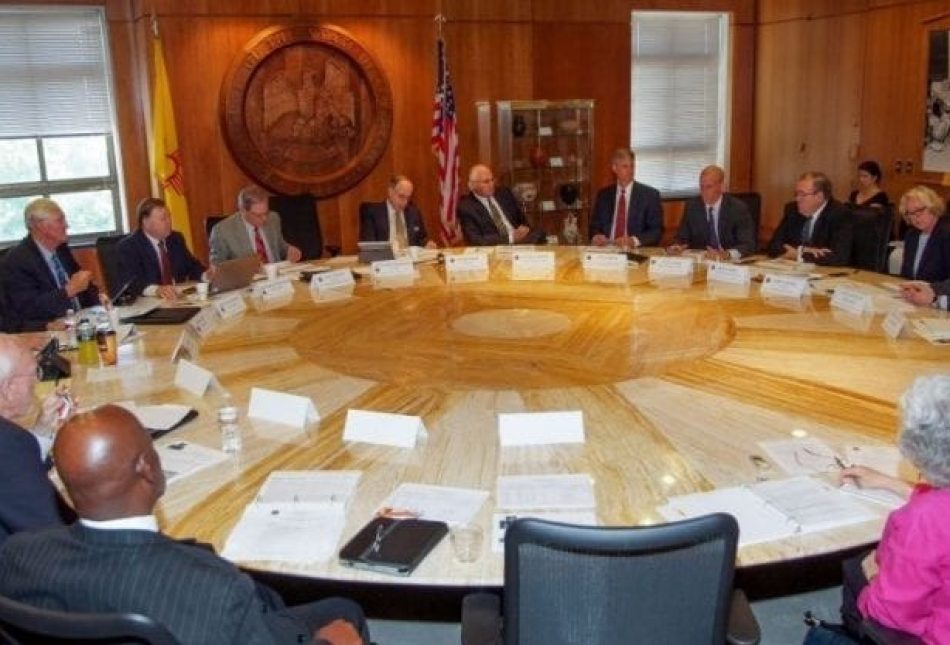Elect Representatives to Serve, Not Bring Home Bacon

With the onset of the first debates in the Republican primary for New Mexico’s open US Senate seat, some attention has been temporarily re-focused on the state’s myriad congressional races and away from the presidential race. Now is the time to discuss a few broad parameters outlining what we should expect from our candidates as they attempt to win the right to represent us.
The point I’d like to make here is that we should not judge our candidates by how much federal money they pledge to bring back to New Mexico. Brian Sanderoff, a respected New Mexico pollster, said that the loss of Sen. Pete Domenici’s ability to bring money to the state was “potentially devastating to New Mexico” and went on to compare the state’s prospective congressional delegation to a baseball team that has a lot of rookies that winds up in last place.
There will undoubtedly be a period of adjustment given the recent turnover and new faces, especially in the Senate since Domenici has held the seat since 1972. But will the loss of so much seniority really hurt New Mexico’s economy? More importantly, is it really healthy for New Mexicans to encourage their elected officials in Washington to grab as much money for the state as possible? I say “no.”
Unfortunately, the pressure to bring federal money back to the state looms large for candidates. Given the hype surrounding Sen. Domenici’s well-documented efforts on behalf of the labs and military bases, the issue has also loomed large in Republican Party criticisms of Rep. Udall and his lack of willingness or inability to stop cuts at Sandia and Los Alamos labs.
Gov. Gary Johnson, on the other hand, in deciding not to run for the Senate, cited the need for New Mexico’s delegation to “belly up to the federal trough” as one particularly unattractive aspect of the job. Johnson told the Albuquerque Journal, “I’d be terrible at that job.”
This is sad. Regardless of whether or not Gary Johnson or Tom Udall would make a good U.S. senator, New Mexicans should vote on whether they support each candidate’s agendas and not based on who can bring the most federal money to New Mexico.
After all, relying on the federal government has not made New Mexico a prosperous state in the past. In fact, while New Mexico receives more money from the federal government relative to what it sends to Washington in the form of taxes ($2 for every $1), we remain among the poorest states in the nation.
Given our sudden loss of clout in Washington, this might be the time to further efforts at economic development such as further reducing New Mexico’s income tax rates and creating a more business-friendly regulatory environment. Such efforts would be preferable to more narrowly targeted efforts, given the struggles experienced by Eclipse Aviation, Tesla Motors, and Green Rubber Global — three businesses that have received generous tax breaks and subsidies to locate here.
In an economy driven by federal spending, benefits are largely limited to recipients of government largesse that is taken from productive citizens in other states. Innovation and entrepreneurship are not cultivated as policymakers are not forced to create the conditions necessary for such activity to flourish. In an economy that is forced to sustain itself, creativity is nurtured and the benefits of this creativity are spread throughout the economy.
New Mexicans have little or no control over the location of military bases, Indian reservations, and a relatively robust federal presence. However we must disavow ourselves of the notion that federal spending is or should be the key to our economy.
More importantly, no matter who we vote for, we should elect our leaders based on how they will represent our state, not how much money they can take from taxpayers nationwide and bring home.
Paul Gessing is president of the Rio Grande Foundation, a research and educational organization dedicated to promoting prosperity for New Mexico based on principles of limited government, economic freedom and individual responsibility

